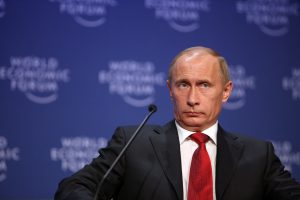No, five times no. The enlargement of NATO to include Sweden and Finland is not a pointless and dangerous provocation, and the first reason for that is that far from being the result of American pressure, it is the direct consequence of Vladimir Putin’s military aggression.
The United States did not require the Finns and Swedes to renounce their neutrality. Nor did the EU member states urge Stockholm and Helsinki to join the Atlantic Alliance. There was no Western plot, but 1300 kilometres of border, the one between Finland and the Russian Federation.
The Finns figured that if his Ukrainian failure were to force Vladimir Putin to look for a way out, he would go after them rather than the Baltics, who benefit from the American umbrella by virtue of their membership of NATO. The Swedes, for their part, thought that if Vladimir Putin attacked Finland, they would inevitably be dragged into war or find themselves with an armed Russia on their doorstep.
These two countries therefore preferred to opt preventively not for war but for the solidarity of the Atlantic Alliance, and there is nothing in this – the second reason not to speak of a provocation – that should feed the “Russian encirclement complex”, because this nonsense must come to an end.
As the largest country in the world, Russia is by definition surrounded, but contrary to what this might lead one to believe, it is not surrounded by the West. It is surrounded by the European Union and NATO on one side, but also by China, its main ally, by Belarus, which it controls, by the Caucasus and Central Asia, where it carries a lot of weight, and, of course, by Ukraine, where it is currently trying to create a buffer zone which it would like to annex.
There are worse encirclements than this and – the third reason to stop being afraid to offend Mr Putin – we should never forget that before he had annexed Crimea, the Ukrainians massively rejected the idea of their country joining the Atlantic Alliance. At that time, just as many of them rejected it as they wish to join it now, but by amputating an entire part of their territory, Mr Putin has convinced them of the need to join NATO, just as he has convinced Finland and Sweden by attacking Ukraine.
This president cannot complain about what his own provocations provoke and – as a fourth reason for not wanting to cater to the aggressor’s sensitivities to such an extent – Putin’s Western neighbours have far more reason to fear him than the other way round. Neither Ukraine nor any Atlantic Alliance country has ever annexed a square centimetre of Russian territory, nor would it want to do so, while Russia has annexed Crimea, and attached itself to Transnistria, Abkhazia, South Ossetia and large parts of the Donbass.
The fifth reason not to worry so much about offending Mr Putin is that the question is not how not to offend him but how to stop him.
Let us imagine that he wins this war.
The reconstituted Russian Empire would then border on countries that are members of the European Union and the Atlantic Alliance. Mr. Putin could again claim to be surrounded and, strengthened by his victory, seek to push back the “Western threat” by putting his hands, as in centuries past, on Poland, the Baltic States and Finland, which are not wrong to fear this stuttering of History.
It is a never-ending cycle that could start again in Ukraine and it is only when Mr Putin has recalled his troops that it will be time not to repeat the mistake of the Treaty of Versailles, not to humiliate Russia but to create, together with it, the conditions for the stability and prosperity of Europe, of our continent which could, one day, become a common one.


